FORGOTTEN THRILLERS: THE HERBIE KRUGER SPY NOVELS BY JOHN GARDNER
Nowadays John Gardner is probably best known for his James Bond continuation novels, Icebreaker, Licensed Renewed etc, but he also created some other outstanding series across the spectrum of crime and thriller fiction. From his original spoofy Boysie Oakes books to his three novels about Sir Arthur Conan Doyle’s fictional villain, Professor Moriarty, to his final series about World War II police woman, Detective Sergeant Suzie Mountford, he covered a breadth of territory, which was also complemented by some very good, and slightly offbeat, stand alone thrillers in the 1970s.
Some of my favourite Gardner books, however, were the five spy novels in his Herbie Kruger series. ‘Big Herbie’ began his espionage career as a German war orphan used by Americans to identify hiding Nazis. Later, he was handed over to British Intelligence, where he excelled, eventually gaining British citizenship and a formal position.
At the start of the first book in the series, The Nostradamus Traitor (1979), Herbie is a legend in the service, famous for establishing a valuable ‘behind the lines’ network in Eastern Germany. At forty eight years old, his best years seem to be behind him, but he is called on when particularly difficult jobs are required.
Dismissed by the younger generation of agents as being a dinosaur, Herbie is still very astute, although he hides it behind his well-crafted image of a bumbling, clumsy man with a poor grasp of English.
There were five books in the series set over twenty five years:
- The Nostradamus Traitor (1979)
- The Garden of Weapons (1980)
- The Quiet Dogs (1982)
- Maestro (1993)
- Confessor (1995)
The first three books pre-date Gardner’s James Bond novels, while the last two came towards the end of them. The first three form a nice trilogy and bring the series to a good conclusion at that point, whereas Maestro and Confessor revisit Kruger in his retiring years and deliver a couple of surprises.
I read the five books as they came out in the 1980s and 1990s and, apart from Maestro, enjoyed them. I recently decided to go back and re-read them and see whether they had stood up well over the years. In large, they did, and I have put together some brief words on each of the books below.
In many ways The Nostradamus Traitor set the basic format for the rest of the books in the series. The story unfolds in two parts. In the first Herbie is asked to interrogate a well respected British agent on the verge of retirement about a secret wartime mission to drive a wedge between Himmler’s SS and the Wehrmacht. Through Herbie’s interrogation the second story unfolds, as the agent relives the audacious plan to use manipulated Nostradamus quatrains to sow dissent amongst the Nazis leadership.
The World War II mission is original and interesting, and it gives the plot the excitement, gunfire and suspense needed to drive the story along and keep the reader interested. Meanwhile, in 1978 Herbie works his way through a maze of duplicity, especially when the German ‘wife’ of one of the mission’s original participants turns up seeking his grave.
The Nostradamus Traitor is a terrific book. Both storylines are clever and engaging, and the wartime scenes are packed with authenticity. There are plenty of twists and turns, in both stories, and the final outcome is tense and cynical. Herbie emerges as a substantial and interesting character, and the manipulations and interplay between the various elements in British Intelligence are convincing.
I had vague memories as to how the two stories concluded, but there was still plenty that surprised me.
In all, a very good start to the series and a minor classic of British spy/war thrillerdom.
The Garden Of Weapons (1980) opens with Herbie’s prized achievement under threat. The six surveillance agents he put in place in East Berlin in the 1960s are still active and providing useful information. However, when a high ranking KGB officer commits suicide and another defects, it becomes clear that one of his agents may be suspect. A special team is set up in West Berlin to interview the six operatives to identify the traitor. Herbie is under strict instructions not to go into East Berlin, but he has never been very good at obeying orders.
This is a first class spy thriller. The format slightly resembles The Nostradamus Traitor with the interviews between Herbie and the six agents providing the background to the story, while in the present (1980) the various machinations and reversals of allegiance keep the pace up. The spycraft is convincing, especially the scenes in East Berlin, and the ending is suitably exciting and dark.
As with The Nostradamus Traitor, the characters are interesting and fully fleshed out, and some of the supporting players from the first book, especially young Worboys, are given more space here.
I had the pleasure of reviewing The Quiet Dogs for the Canberra Times when the paperback edition came out in 1982.
I have reproduced the short review from 17 June 1984 in its entirety below:
“‘The Quiet Dogs’ is the final instalment in the Herbie Kruger trilogy. Big Herbie, in disgrace at the end of the last book, and still under suspicion, is given a last chance to redeem himself by bringing Britain’s top agent in the Kremlin, Stentor, out of the USSR.
Gardner handles the slippery plot with his usual deft hand – although there are a few too many lucky escapes in Russia – and brings the trilogy to a typically dirty end. A good read for serious spy fans.”
Having re-read the The Quiet Dogs I would not add much, other than to say that the ending is probably one of the more cynical I have come across. It is also slightly humourous in a dark and ironic way.
I thought that the first three Herbie books were all very good. The Nostradamus Traitor can easily be read as a ‘stand alone’, whereas The Garden Of Weapons and The Quiet Dogs are clearly intended as a couplet and need to be read together. Of the three, The Quiet Dogs is probably my favourite, mainly because of the ending.
Maestro (1993) appeared eleven years after The Quiet Dogs and towards the end of Gardener’s James Bond continuations. I did not like it when it first appeared and that view was not changed upon re-reading it.
The narrative primarily revolves around an extensive interrogation, punctuated by instances of contemporary violence. Central to the book is Louis Passau, an eminent American orchestra conductor who has attained the venerable age of ninety. As he prepares to celebrate this milestone with a commemorative concert at New York’s Lincoln Centre, a scandal emerges. Passau faces allegations of having spied for Hitler and assisted clandestine KGB operations in the United States during the Cold War. The CIA, FBI, and British Secret Intelligence Service (SIS) have agreed that Passau may conduct the concert, but he is to be interrogated immediately afterward by SIS agent-runner Herbie Kruger. Following the concert, an attempt on Passau’s life occurs, leading “Big Herbie”, and the astute and attractive young SIS agent Pucky Curtiss, to take the Maestro into hiding.
As Passau’s confession unfolds it becomes increasingly harder to separate the truth from the lies and fantasy, especially when it comes to the Cold War.
At 600 odd pages, Maestro is the longest of the Herbie books, and way too much time is spent on Passau’s reminiscences about his early love life and his experiences with various crooks and gangsters. The spying detail is interesting, but it comes too late in the story. It does, however, set up an unexpected, and unlikely conclusion, which is also the most poignant of the Herbie books.
I am not a fan of this one, but the cover on the paperback edition of Maestro (above), is very subtle and clever.
Confessor (1995) opens with Herbie wallowing in self pity and drinking too much. He is thrown a lifeline when his old, recently retired colleague, Gus Keene, is killed by a car bomb on the rural lane leading from his peaceful country cottage. Keene had spent his career as one of the SIS’s most highly regarded inquisitors, or “confessors,” debriefing hundreds of defectors, suspected double-agents and other secret-keepers in the great game of espionage, including Herbie following his sojourn in East Berlin. The authorities are not sure why Keene was killed and suspect it is linked to a recent outbreak of terrorist activity across Europe. Drawn out of his semi-retirement by the now senior Worboys, Herbie leads the investigation into the car bomb attack, and delves into Keene’s past and the black arts of the “Confessor.” In the process he uncovers secret cover-ups, double agents and unknown aspects about Keene, including his secret life as a leading authority on magic. Meanwhile a vicious Middle Eastern terrorist group, with links to a renegade IRA cell, sets off on their reign of terror.
This is a fitting conclusion to the Herbie Kruger series. The plotting is convoluted, but easy to follow, and Herbie’s search through Keene’s past reveals secrets that link to his own background. Despite the intricacy of the maze that Gardner has created, the story moves along at a quick pace with plenty of suspense and action, mainly powered by the activities of the terrorists. There is probably more violence than in the earlier books, but it is all credible and the ending is exciting. There is also a very unexpected reveal towards the end.
Confessor is certainly as good as the earlier books and is a good finale. Having re-read the five books, I can say that they have stood the test of time well. Of course, some of the attitudes and language are out of place now, but not as much as in the work of other authors. Gardner treats his female characters well, and gives them good depth and a nice share of the action. Apart from Maestro, I also enjoyed the briskness of the stories and re-appreciated Gardner’s ability to tell a complex story succinctly, and without the endless introspection we get now.
So I can strongly recommend a read, or re-read of the Kruger books. Individually they maybe difficult to find, but a set of the five books are available on Kindle for an incredibly small amount. Happy reading.
Here is a link to a review of a stand alone spy novel by Gardner, The Werewolf Trace: https://murdermayhemandlongdogs.com/spooks-and-spooks-forgotten-thrillers-supernatural-spy-novels-by-george-otoole-and-john-gardner/

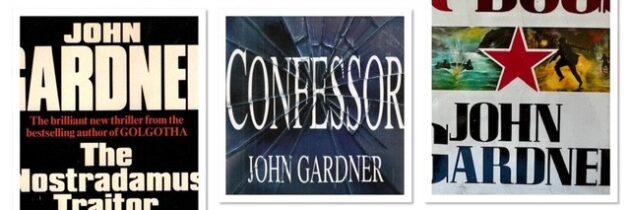
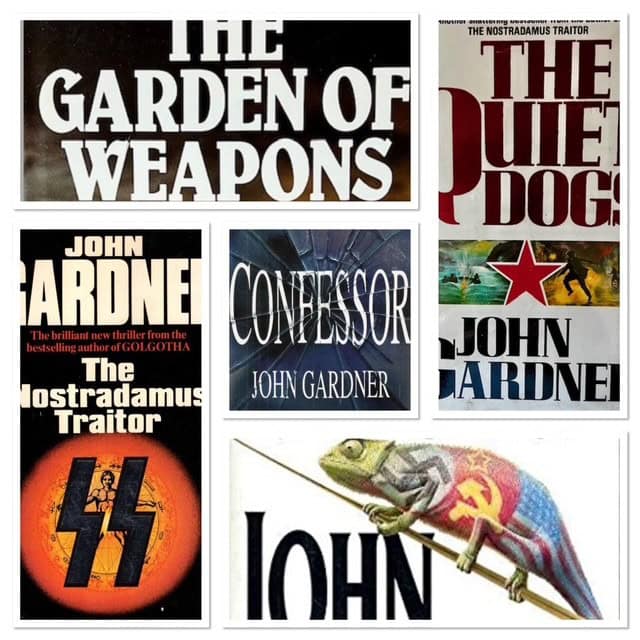
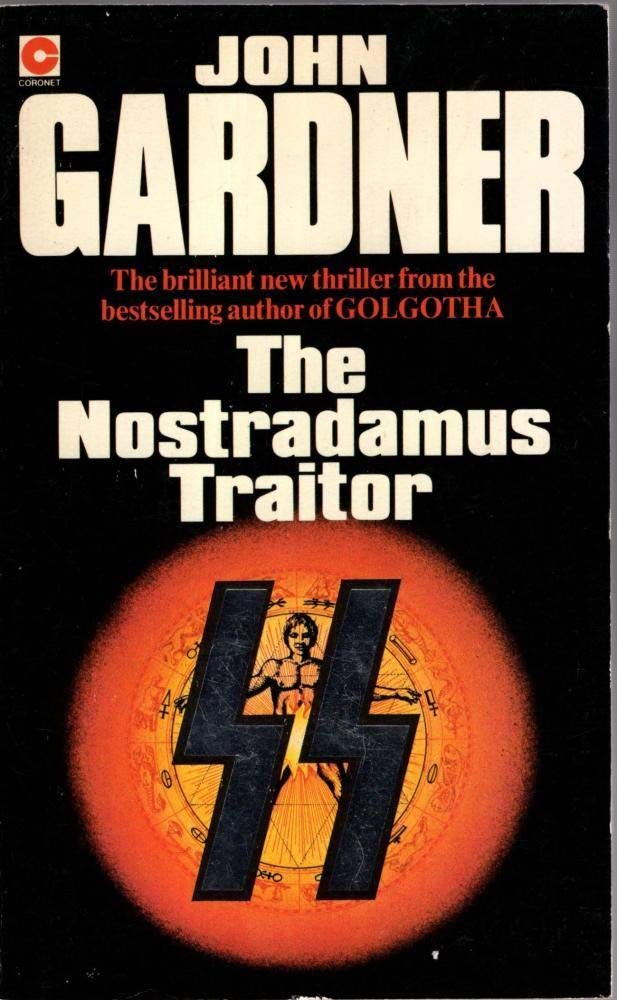
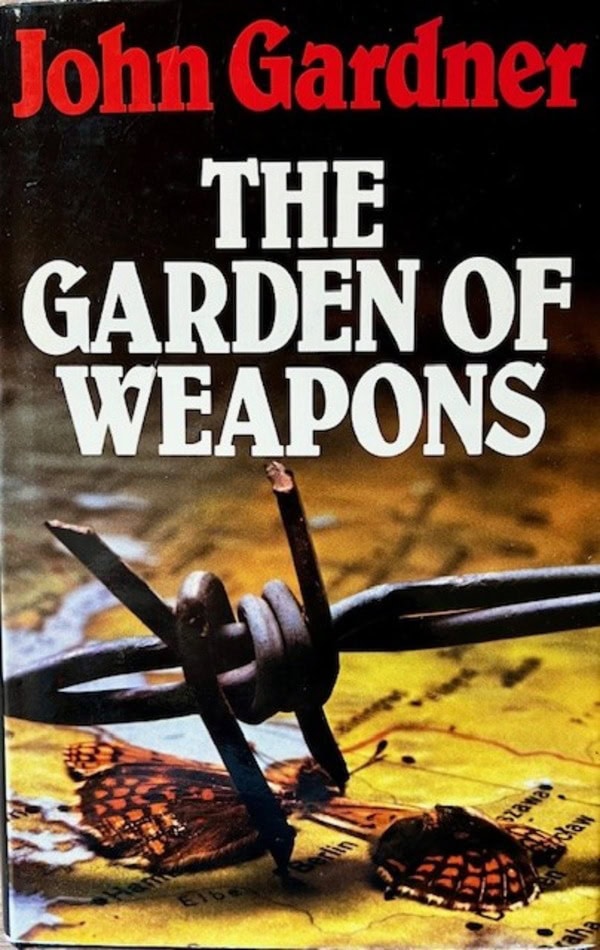
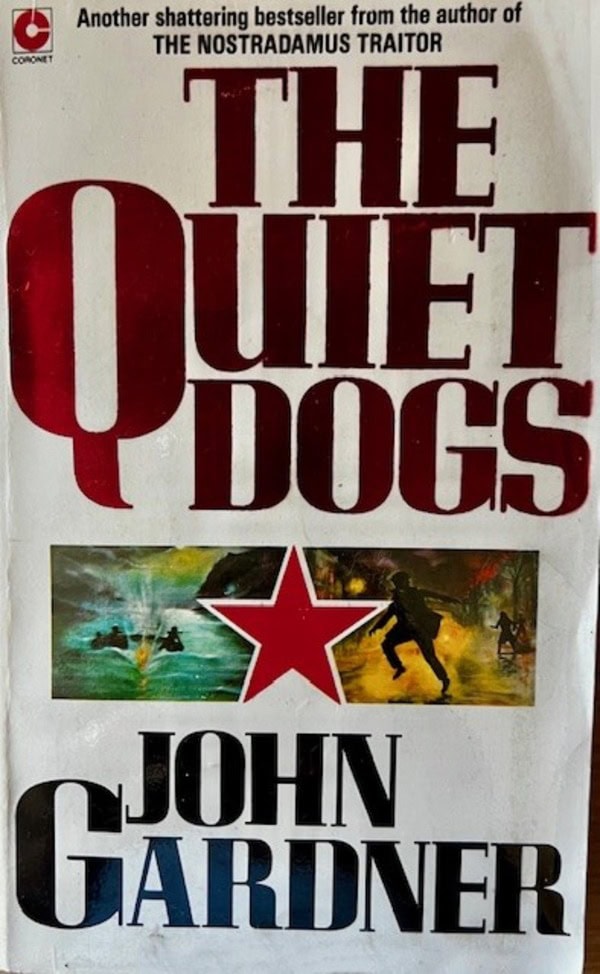
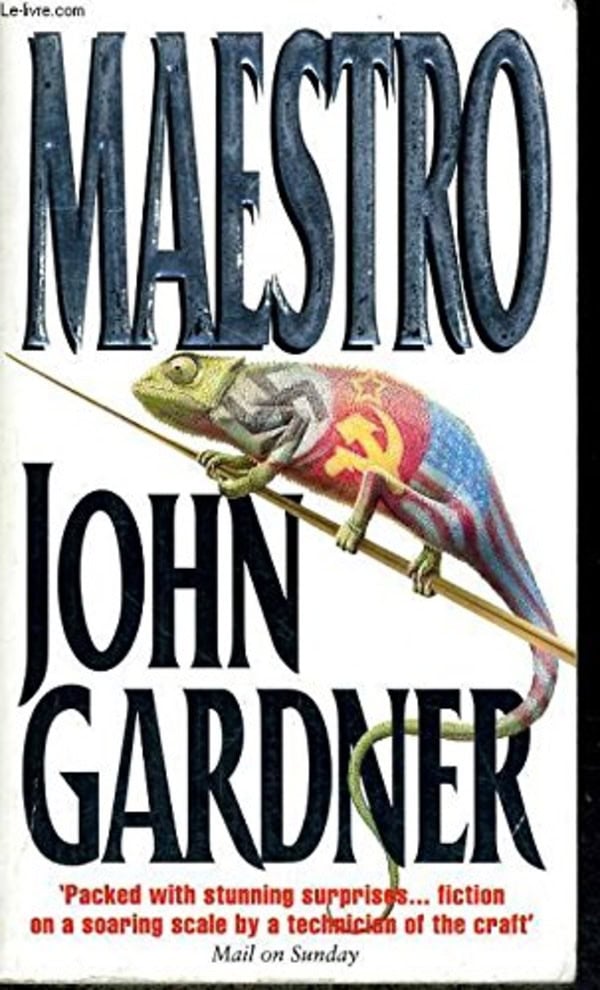
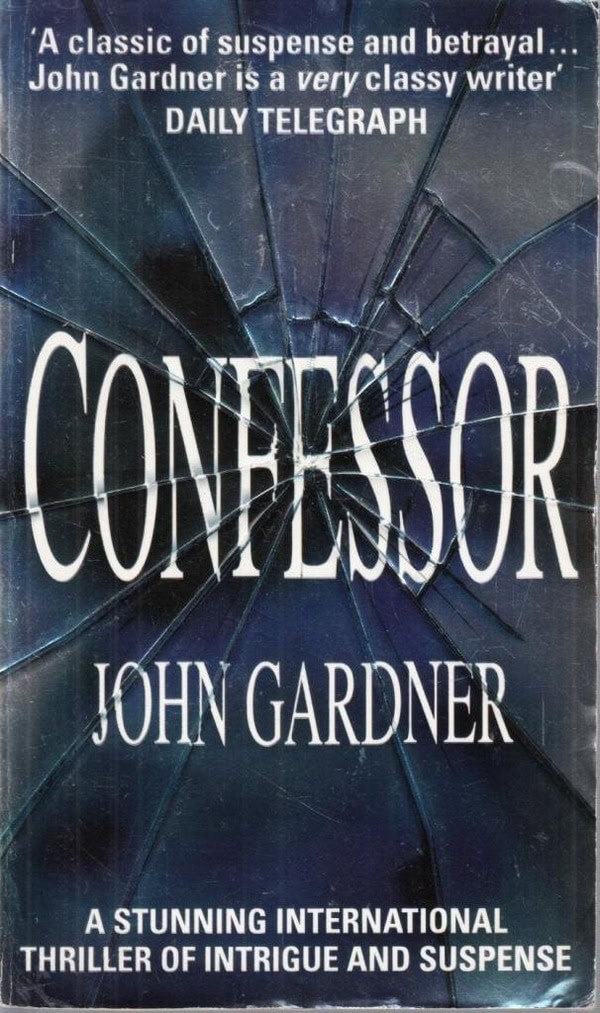
A very interesting run through of the series. I’ve on read The Nostradamus Traitor so far, but have Garden of Weapons on my ‘to read soon’ pile of books.
I also read The Liquidator recently, the first of the Boysie Oakes thrillers, & thoroughly enjoyed it. This is definitely an author I’ll be reading a lot more of.
As a last point, between 1985-1989 Gardner had a trilogy published, concerning two families involvement with the British secret services from the early 20th century to the 60’s, & though I haven’t read them yet I believe Herbie Kruger appears at some point in them.
Anyway , I love your site! Keep up the great work & happy reading.
Best wishes from the UK.
Nick
Thanks. Yes he does appear in them (2 and 3 from memory). But he is not the main figure – I did not re-read them as they did not really appeal to me. Yes I must go back and have another look at the Boysie Oakes. All the best, Jeff